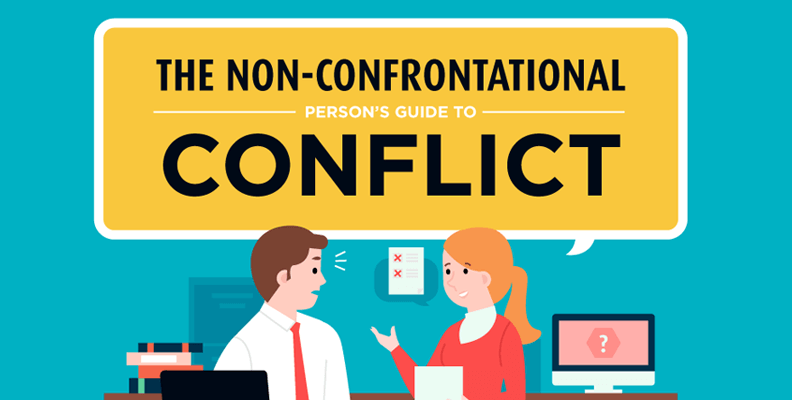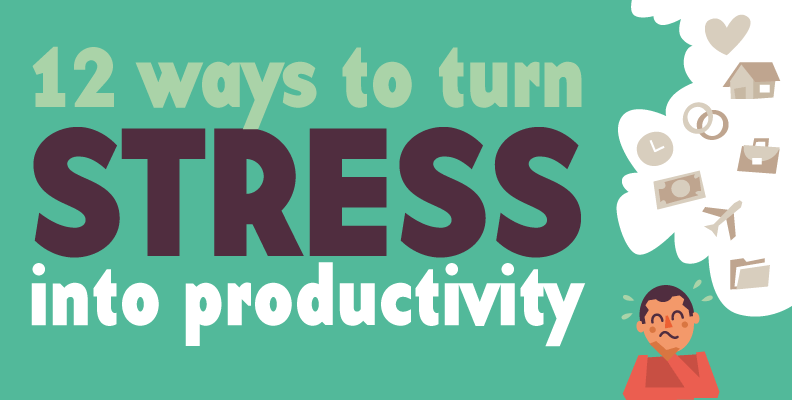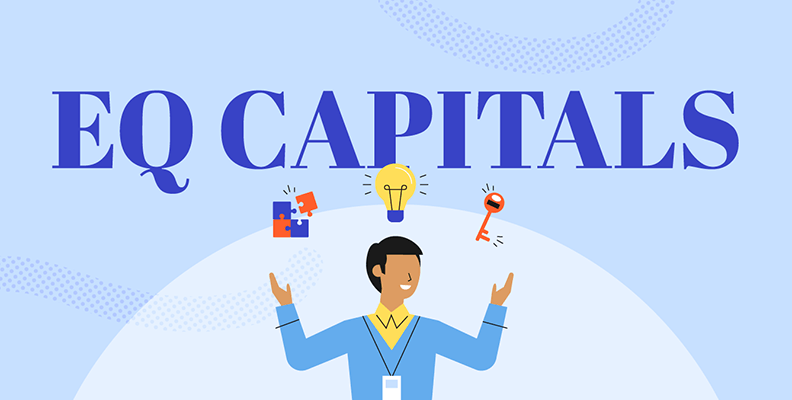Conflict can arise from even the smallest of matters in our personal and professional lives. A lot of the time we would prefer to just avoid doing anything and hope it sorts itself out on its own. However, it has been proven that taking the path of simply avoiding confrontation can have extremely negative consequences on your health.
Studies have shown that resentment increases the activity of the amygdala in our brain, leaving us in a stressed “fight-or-flight” mode[4]. This stress can be a contributing factor to brain shrinkage and depression[6]. As well as that, coaching professionals, like Esther Jeles[3], will tell you that without confrontation, problems don’t have an opportunity to be ironed out and made better, and we do in fact have the ability to handle conflict effectively.
So not only is conflict-avoidance bad for your health, it can also harm your professional circumstances. If you are a non-confrontational person, then it can be a great help to look at ways to improve how you deal with conflict. The first step should be to get into a space where you are more comfortable with confrontation as a whole. You can do this by reframing the event to focus on its positive aspects or by starting out practicing with smaller confrontations to get comfortable with communicating your boundaries.
A conflict situation can still be very daunting, however, even if you have prepared well. One of the most important things to remember is to try and keep your emotions in check by focusing on the facts of a situation. Making the dialogue as unemotional as possible will also help you to hold your voice at an assertive level.
Having a goal that you are working towards is also important. Through listening to the other person’s point of view and fully disclosing your own, you have the opportunity to achieve a solution that will satisfy both parties, and, most importantly, get any problems off your chest.

Sources:
- Howes, R. 2014. How to Confront. psychologytoday.com
- Borchard, T. 2015. A Little Confrontation is Good for You. psychcentral.com
- Stone, J. 2008. How to Take the Fight Out of Confrontation. oprah.com
- Arnsten, A.F.T. 2009. Stress Signalling Pathways That Impair Prefrontal Cortex Structure and Function. ncbi.nlm.nih.gov
- Hustad, M. 2011. Why Confrontation at Work is Critical. fortune.com
- Slezak, M. 2014. Protein That Shrinks Depressed Brains Identified. newscientist.com
- Burgess, G. and Burgess, H. 1996. Constructive Confrontation Theoretical Framework. colorado.edu
- Rollin, J. 2016. 3 Ways to Set Boundaries and Learn to Say “No”. psychologytoday.com
- Bel Hill, N. 2015. Why Do We Avoid Confrontation? elitedaily.com
- Stinnett, B. 2012. Confrontation is an Act pf Respect: Why Leaders Should Encourage More pf It. gordontraining.com
- Threlfall, D. 2014. 10 Powerful Conversation Phrases that Will Improve Your Leadership. teamgannt.com
- Tabaka, M. 2014. 10 Ways to Make a Confrontation Work for You. inc.com
- Moran, G. 2014. 6 Simple Ways to Improve the Way You Speak. fastcompany.com
- Gunderson, G. 2015. The 8 Characteristics of Healthy Confrontation. entrepreneur.com
- Caprino, K. 2013. 5 Critical Steps to Fearless Conversation. forbes.com
- Dishman, L. 2015. The Science of Why We Talk Too Much (And How to Shut Up). fastcompany.com
- Johnson, J.A. 2012. Are ‘I’ Statements Better than ‘You’ Statements? psychologytoday.com
- Ames, D.R. and Wazlawek, A.S. 2014. Pushing in the Dark: Causes and Consequences of Limited Self-Awareness for Interpersonal. columbia.edu
- Seltzer, F.L. 2013. Anger—How We Transfer Feelings of Guilt, Hurt, and Fear. psychologytoday.com
- Hustad, M. 2011. Why Confrontation at Work is Critical. fortune.com
Embed This Image On Your Site (copy code below):






